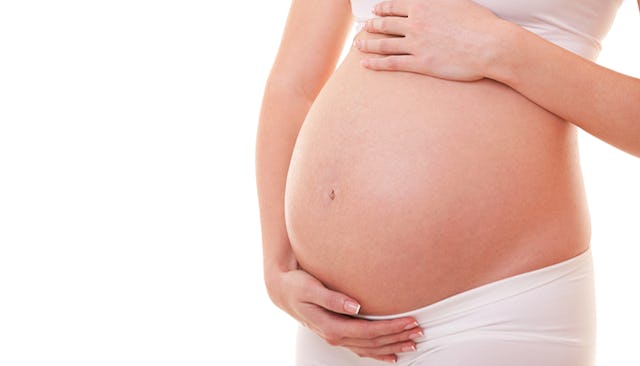Science Says There's No Need To Delay Pregnancy Post-Miscarriage

Women don’t have to wait to get pregnant again after a loss
It’s a commonly-held belief in the medical community that women who’ve experienced a miscarriage should wait up to six months before becoming pregnant again, but a recent study is turning that notion on its head. According to new findings, waiting to get pregnant post-loss isn’t any less risky than letting it happen shortly after.
And for couples eager to get pregnant again after a loss, that’s great news.
A study published last month in the journal Human Reproduction Update contradicts conventional wisdom about how soon a woman can try for another baby after a pregnancy loss. The current World Health Organization advice is for women to wait six months, which they state could be healthier for the baby. But this study, which combines information from 10 earlier studies, finds it to be unnecessary. The information that the WHO based their standing on only used statistics from a single study rather than several, which means their findings could have been an outlier.
Enrique Schisterman is a senior investigator in epidemiology at the National Institute of Child Health and Human Development and co-author of one of the 10 studies used in determining these new findings. He says, “Women who get pregnant after less than six months between the pregnancy and the loss should not be worried about adverse pregnancy outcomes, and if nothing else actually they should be encouraged.”
And statistics bear out Schisterman’s advice. The researchers found no evidence of dangers in getting pregnant quickly after a miscarriage and in fact, found a possible benefit. The rate of having another miscarriage with a pregnancy occurring less than six months after a loss was only 82% of the rate of another loss when waiting the conventional six months. The risk of pre-term birth was also less — 79% of the rate for women waiting longer than six months to become pregnant again.
Researchers also noted that conceiving shortly after a full-term birth does carry additional risks of low birth weight and prematurity. But until now, there wasn’t much data on pregnancy spacing post-miscarriage.
However, Schisterman notes that a lack of information on how far along a pregnancy was when the loss occurred is one drawback of this study. A later loss might make close spacing of pregnancy riskier, as a near full-term pregnancy produces levels of folate in the mother that must be replicated before a new pregnancy. “I think we need a little bit more data on the different underlying reasons for a pregnancy loss and see what the optimal interval is,” Schisterman says.
Sohinee Bhattacharya, the leader of the study, says, “There is now ample evidence to suggest that delaying a pregnancy following a miscarriage is not beneficial and unless there are specific reasons for delay couples should be advised to try for another pregnancy as soon as they feel ready.”
And for couples reeling from a loss, that could be music to their ears. While some might need time before they’re prepared to try again, others don’t want to waste several cycles before trying for another baby. When it can take up to a year or longer for some couples to conceive, being told to wait six months after a loss can be salt in the wound. Thankfully, this new information says they don’t have to.
H/T Live Science
This article was originally published on